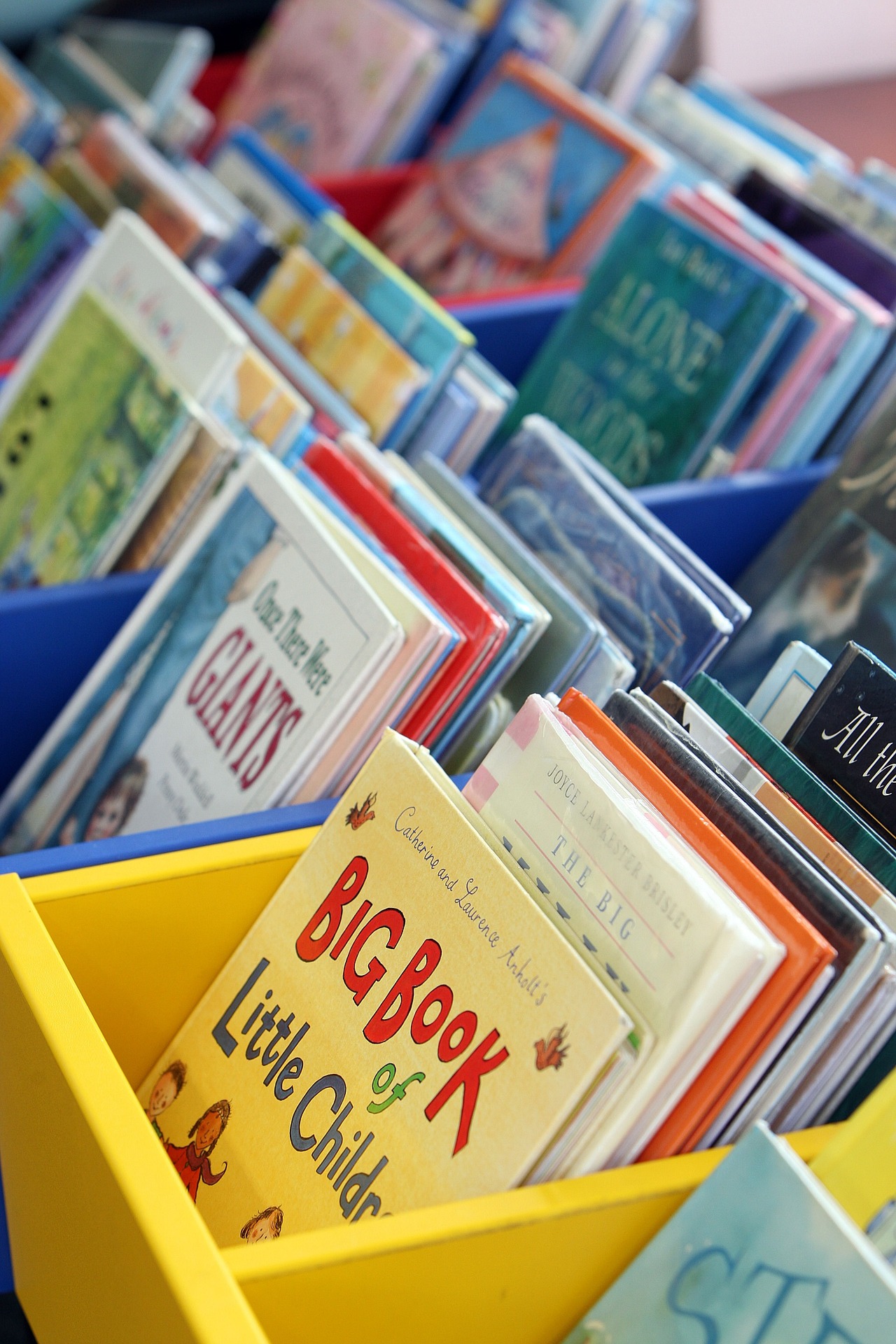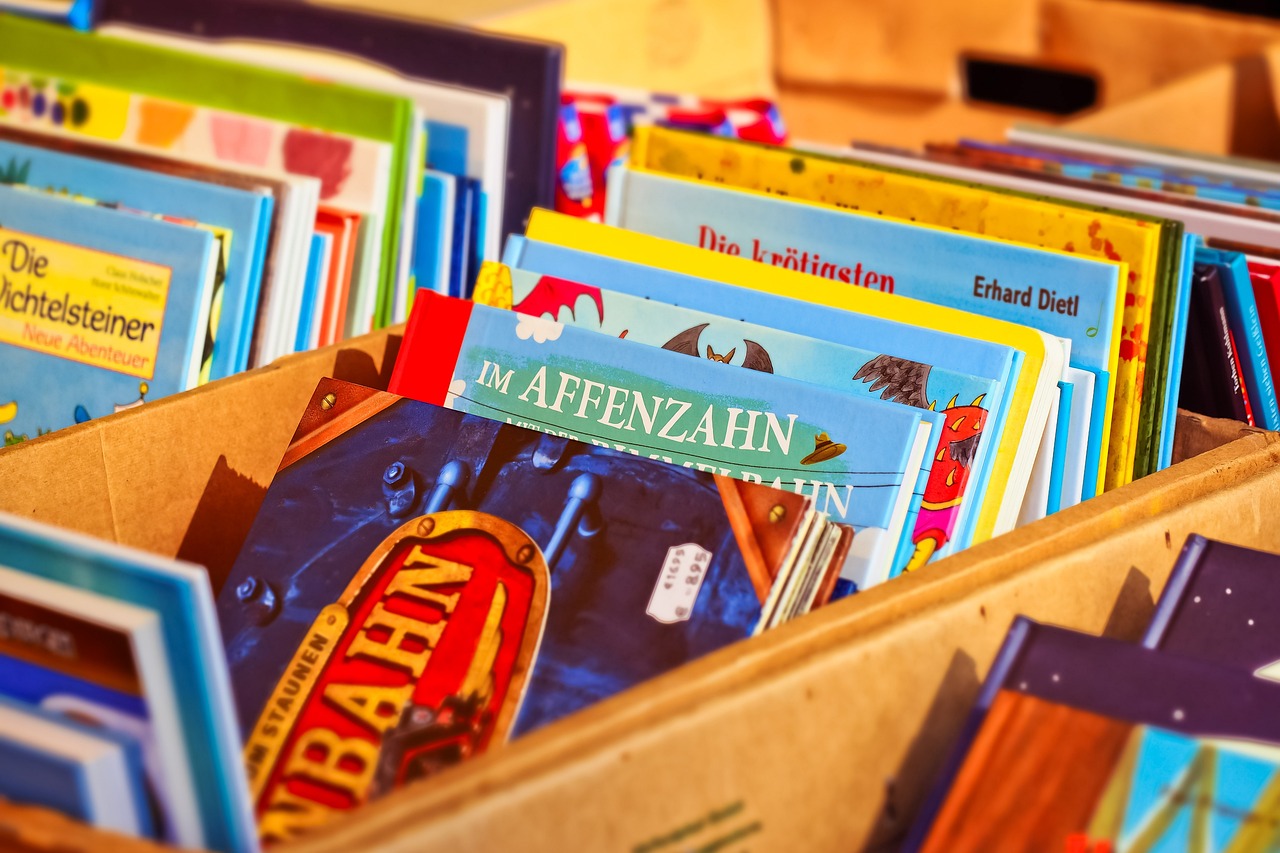Children’s Books Part 2: Building a strong author brand for Children’s Books
Why is a children's author's brand important? Let's dive into this and discuss marketing strategies for children's books.
The Importance of Children's Author Brand
Whether you are self-publishing or signing up with a literary agent for your children's books, you need to work on your author brand. Your children's author brand is basically who you are behind the children's book. You can think of it as your sort of writing persona.
When it comes to marketing strategies for children's books, it's best to have a warm, child-friendly brand that parents will feel comfortable sharing with their children. If you write other books that are not aimed at children, it's best to adopt a pen name solely for children's book writing.
Your author brand [LINK 'BEYOND WORDS AUTHOR BRAND' PIECE] will help you engage with your target audience. In order to develop your brand, consider what makes you and your books unique. What sets them apart from children's books? When creating your author brand, you want to include a story or journey behind the book. Why did you write it, and who is it for?
It's worth investing wisely in marketing, particularly things like a brand logo. Having your own author website (where you could even sell books directly) would be a good way to ensure anybody who searches for your name online finds you.

Target Audience for Children's Books
When considering marketing strategies for children's books, you have to ask yourself: Who are you targeting? There are two answers to that question. Naturally, one of the target audiences for children's books is children. The book has to appeal to the child as something they want to read (or at least look at). If children aren't interested in the book, it won't be successful.
At the same time, the child isn't usually going to be the one actually purchasing the book. Most children's books will be bought by a parent, guardian, or other caregiver. So, the book and your children's author brand have to appeal to an adult with children.
So, marketing children's books is a little bit more complex than marketing a book for adults because you aren't actually marketing toward your ideal reader. So, you need to ensure the book appeals to parents or caregivers as something they would like to give to their children.
Parents often want their children to see themselves or their own situation in their books. For example, if they are expecting a new baby or if they are getting a pet, they may want to buy their child a book about those things. Equally, if they are a single parent or there is someone in the family with a disability, they may look for a book with those things represented. So it's not like your customer is just buying a book to keep their child busy; they would like their child to learn something through the book.
Of course, when it comes to target audiences, in the case of books aimed at children, age is a big factor. When children start reading, the text will be very simple, and there won't be much in the way of the plot. As they get older, there can be more of a story and a wider variety of languages. So, when writing a book for children, it's important to consider the age group you are writing for.
Marketing Strategies for Children's Books
Your children's author brand will help you market your book. We've established that the target audience for children's books is more complex than adult books, so you need to adjust your marketing strategies. Here are some ideas:
- Share good reviews of your book. This will help you build up your book's reputation. It is worth seeking out good reviews to have something to share.
- Visit schools and book fairs. This is a great way of making connections and appealing directly to your target audience. You may even be able to do a reading of one of your books in a school or library.
- Enter book awards. You may not win, and you don't have to, but entering into book awards is a really good marketing strategy for children's books because it helps you get your work out there.
- Seek out media to promote your book. Put together a press release and email it around to local media. Appearing on a radio show or podcast will help you get the word out about your book.

The idea behind marketing your book is to build a loyal fan base that is going to consistently read your work. It's important that you budget for the marketing side of your venture as an author.
Elements of Successful Children's Books
In Part 1 [LINK PART 1], we looked at the importance of imagination in children's books and how important it is to have relatable characters and a captivating plot.
Another important element of a successful children's book is that the book reflects the child's interest in some way. Different children may be interested in different things, like art, sports, or any other hobby. So part of the marketing strategy for children's books is showing how the book appeals to the reader's interest. When considering your target audience for a children's book, consider who could relate to the content portrayed in the book.
Publishing Tips
So how do you actually go about publishing your children's book, then? Well, there are three avenues:
- Traditional Publishing
- Self-Publishing
- Hybrid Publishing
The first of these, as the name suggests, is the typical way of doing things. You go to a literary agent, and if you get accepted, you get paid an advance, and the publisher does all the different elements of publishing while at the same time getting a share of the royalties. The upside to this is that the costs of publishing are covered by the agent; however, the author does have to give up a level of creative control.
Self-publishing has become more popular in recent years. For self-publishing, the author covers all the costs of publishing, including cover design, editing, and printing (the things a literary agent would normally do). At the same time, through self-publishing, the author retains complete creative control and gets all of the royalties. One benefit traditional publishing has over self-publishing is that regardless of whether or not you sell a single copy of your book, as an author, you still get paid. With self-publishing, you get all the royalties, but there is no advance.
Hybrid publishing is a sort of mixture of the two. The author covers some of the costs of publishing and gives up a level of creative control.
If you are a new author, it is difficult to break into traditional publishing as it is very competitive, and it can be hard to get signed with a literary agent for children's books if you haven't been published before. In addition to this, you don't have proof of success, so you won't be able to strongly argue against any creative changes. That being said, literary agents are beneficial because they have connections to retailers and can ensure your book is published professionally. They can also help you with marketing.
If you decide to go with self-publishing, you don't have to do it alone. There are self-publishing services that can help you put together the different aspects of your book. It's worth researching these services to see which ones are a good fit for you in terms of price range.
Literary Agents for Children's Books
If you would like to go the traditional publishing route with your book, you will need to partner with a literary agent. So how do you go about approaching literary agents for children's books?
First and foremost, it is advisable to complete the entire fiction book before approaching an agent. That means that you have it written and revised. This is different for non-fiction books, with which you would just show that you have a great grasp of the topic and that you have a plan for the book. But for fiction, you actually have to have the story fleshed out. Your first draft will not be published; you will often need to review your work and make amendments. But a literary agent wants to see a complete book written.
It's worth putting work into researching potential literary agents because not all of them will be suitable for children's books or your type of children's book. When researching potential literary agents, it is important to consider their specialization in other books and their specific preferences for the type of book they are looking for. Most literary agents want writers who have a unique voice and a creative way of putting together a plot for a book.
When you are putting yourself forward to an agent, remember to pitch with confidence. Work on what's called a Back of the book pitch. This is basically like the short piece you would see on the back cover of a book telling a reader why they should buy the book. It should be a succinct piece telling an agent why your book is written for them.
In terms of things to avoid when reaching out, a major one is obviously typos in emails. You're a writer, so it won't look good if you spell words wrong. If you are emailing, ensure every email is personalized to an individual agent. Do not CC an email to multiple agents. Above all, do your research and ensure you have the correct information about literary agents and publishing companies. A major pitfall people make is approaching an agent with incorrect information, or worse, using the wrong name?
In short, if you're approaching an agent:
- Do your research
- Pick an appropriate literary agent
- Perfect your pitch
- Pitch confidently
- Get your facts right!
A Good-Quality Product
If you are going the traditional publishing route, your publisher will handle the actual production side of your book. So they will work on the printing (if it's a print book) and the formatting.
However, if you are going with self-publishing, you'll have to organize these things yourself. That includes the formatting of your book. There are different standards for different formats [LINK MULTI-FORMAT ARTICLE]. If you are getting a standard-sized print book made, you will have to look at the measurements for margins and line spacing. For eBooks, different outlets may have different requirements.
When it comes to children's books, you're marketing a book that may be unconventional in size. For example, your book could be bigger than an average book and have unconventional elements. This is something that literary agents for children's books can help you organize, but there are also self-publishing services that would be able to give you information.

When it comes to your children's author brand, the quality of your book as a product matters, along with the actual book. You want to ensure the cover is well-designed and enticing (something we can help you with at TUW), and the physical book itself is of good quality. For a children's book, you need sturdy material, as the book will probably end up on the floor at some point!
One more thing to consider is the editing itself. It's worth having your book edited professionally to ensure it is perfect.
How Dibbly | The Urban Writers Can Help
At Dibbly | The Urban Writers, we can ensure your book is professionally edited. As a matter of fact, we even have ghostwriters who specialize in children's books and can help you craft your manuscript. We can do anything from providing you with illustrations to designing your cover while you focus on your children's author brand. And if you're struggling with formatting, Dibbly Create is a breeze to use. So don't delay; get in touch with Dibbly | The Urban Writers to fast-track your children's book and make your dream come true.
Final Thoughts
Building a good-quality children's author brand will help you market your book to your target audience. Choosing the right marketing strategies for children's books is an important part of ensuring your book is a success.










